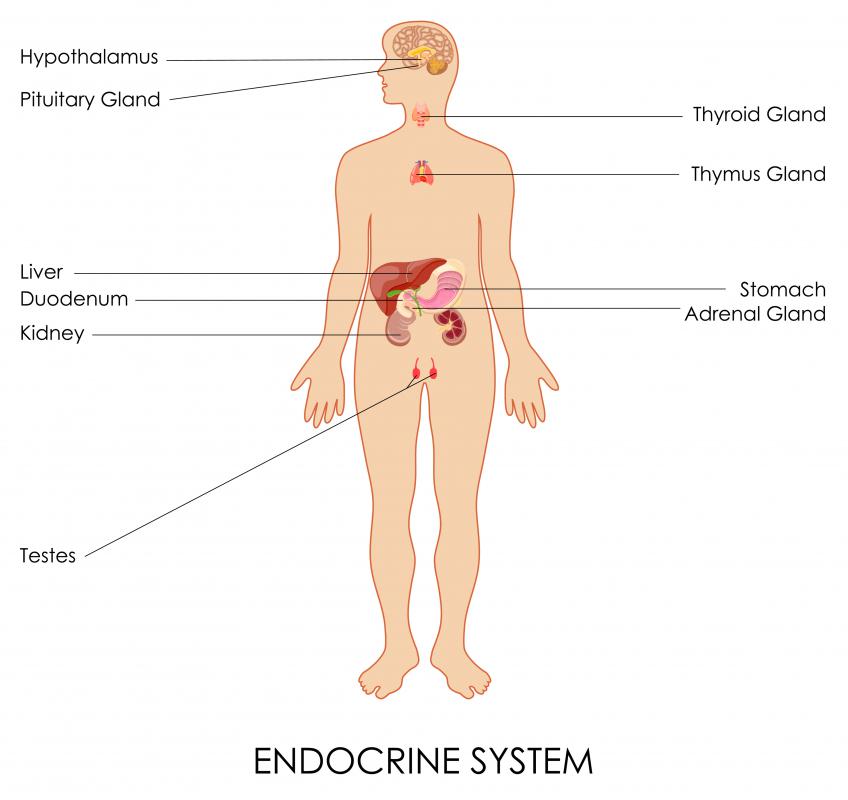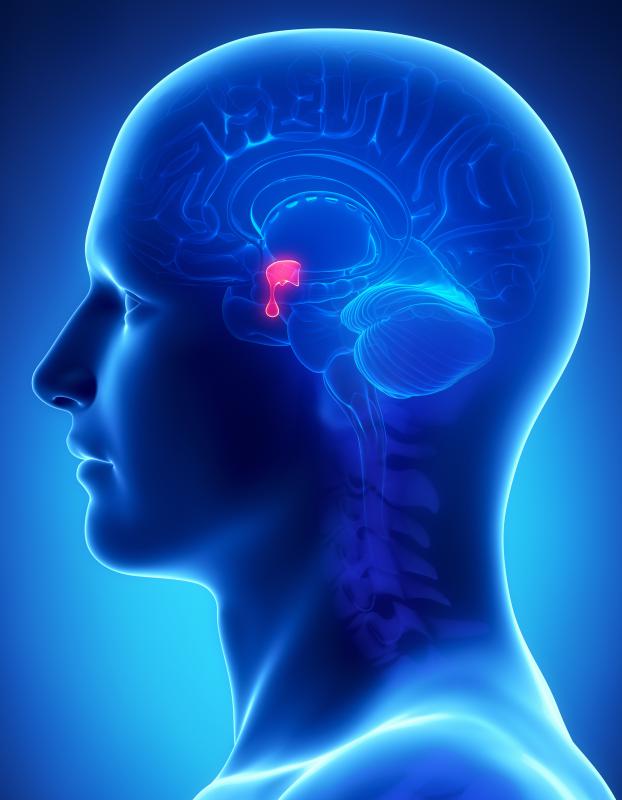At TheHealthBoard, we're committed to delivering accurate, trustworthy information. Our expert-authored content is rigorously fact-checked and sourced from credible authorities. Discover how we uphold the highest standards in providing you with reliable knowledge.
What is Hypercortisolism?
Hypercortisolism, also known as hyperadrenocorticism, or Cushing's syndrome, is a condition which arises when the body is exposed to high levels of steroids for a long time. The type of steroids involved are known as glucocorticoids, and they may have been produced inside the body, due to an illness, or taken as medication to treat a long-term medical condition. Signs of hypercortisolism include a round, red puffy face, a fat body with thin arms and legs, thin skin with purple stretch marks and high blood pressure. Taking steroid medication is the most common cause of the condition, but other causes include adrenal gland disorders and a tumor in the brain's pituitary gland. Treatment of hypercortisolism may involve withdrawal of steroid drugs, surgery to remove steroid-producing tumors, or, less often, medication.
Hormone disorders such as hypercortisolism are sometimes referred to as endocrine diseases because they involve the hormone-producing endocrine system of the body. Hypercortisolism is one of a number of medical conditions related to obesity, and people with the disorder may develop excess fat on the face, abdomen and above the collarbones, as well as on the upper back, in what is known as a buffalo hump. Tiredness, mood swings, aches and pains, and more frequent infections are all symptoms which may be experienced.

Some diseases, such as arthritis, require long-term treatment with steroid medication and this can lead to hypercortisolism. Another possible cause is a benign, or non-cancerous, tumor which produces a hormone called ACTH and which develops inside the pituitary gland in the brain. ACTH acts on the adrenal glands, which sit on top of the kidneys, causing them to secrete excessive amounts of glucocorticoids. Occasionally, tumors can grow in the adrenal glands themselves and go on to produce high glucocorticoid levels. These tumors may be benign, or, less commonly, cancerous.

The treatment of hypercortisolism varies depending on the cause of the condition. If medication has caused the problem, the drugs may have to be gradually withdrawn. Where a pituitary or adrenal tumor is present, surgery is carried out to remove it if possible.
Sometimes, if a tumor has spread, it is not possible to remove it completely. In such cases, drugs may be used which block the effects of glucocorticoids or stop their production by the adrenal glands. If drug treatment fails, the adrenal glands may have to be removed. As the adrenal glands produce a number of different hormones which are vital for the body to function, it then becomes necessary to take replacement hormones throughout life.
AS FEATURED ON:
AS FEATURED ON:
















Discussion Comments
)hypertension
Hypercortisolism can lead to all except which of the following choices? a)hypertension; b)depression; c)PTSD d)drug and alcohol abuse; e)it can lead to all of these choices.
Post your comments